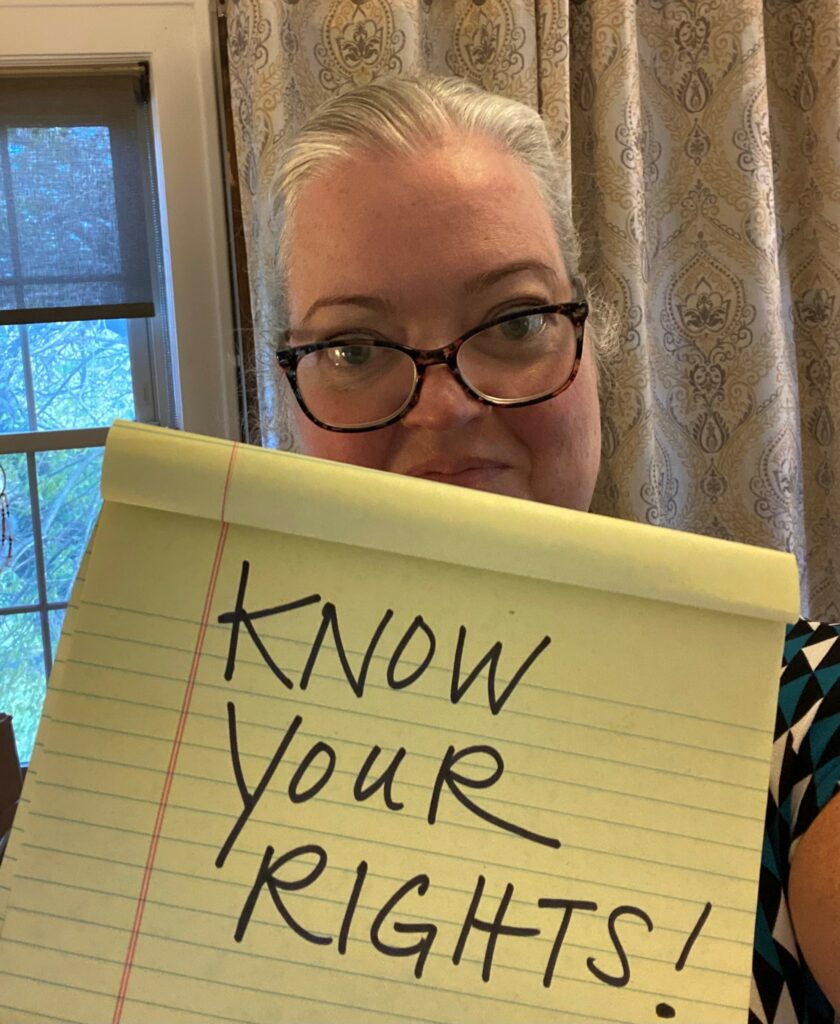We have heard an alarming story from two clients recently that a local nursing home is telling families they are not accepting Medicaid patients at the moment. These are families with loved ones in the rehabilitation unit who are being told they can’t stay long term because either 1) the patient has not shown enough assets to be able to private pay, or 2) because they are not accepting Medicaid patients at this time. Medicaid discrimination clearly violates federal law. While nursing homes can be private pay only and choose not to accept Medicaid at all, most nursing homes do accept Medicaid. If a nursing home accepts Medicaid patients at all, they cannot favor private pay residents over residents covered by Medicaid.
Don’t let a nursing home tell you they aren’t accepting Medicaid. Sometimes you will hear a nursing home representative say they don’t have any Medicaid beds. Typically a Medicaid facility is certified for many, many Medicaid beds, and possibly ALL the facility beds are certified for Medicaid patients. A statement that a facility doesn’t have any available Medicaid beds is almost always a complete falsehood.
Medicaid is the program that pays for nursing home care when all of a person’s assets have been spent down below a certain level. I can think of only one nursing home in the Roanoke Valley that does not accept Medicaid. People often think of Medicaid as a resource for the very poor. In the context of nursing homes, however, it is a benefit for the middle class. With nursing home rates easily topping $10,000 per month in our area, it’s clear many people can’t sustain that kind of a payment for very long.
When your loved one is in a nursing home receiving rehab, and is unable to return home, you are in an excellent position to ensure your loved one can stay in the facility, even if the facility states they are not accepting Medicaid patients, or they don’t have a long term bed, or you don’t have enough financial resources to stay. The fact is, your loved one is in a bed at the facility, and the facility accepts Medicaid. A nursing home can only discharge for six distinct reasons:
–The facility cannot meet the resident’s needs;
–The resident no longer needs nursing facility services;
–The resident’s presence endangers the safety of others in the facility;
–The resident’s presence endangers the health of others in the facility;
–The resident has failed to pay; or
–The facility is closing.
These permissible reasons for discharge are part of both federal and Virginia law. NOTICEABLY ABSENT FROM THIS LIST IS THE ABILITY TO DISCHARGE BECAUSE YOUR PAYMENT SOURCE IS MEDICAID!!!
And while we are on our soap box, we would like to note that a nursing home cannot require you to sign an arbitration agreement as a condition of admission, nor can they require a third party such as a child to sign as a “guarantor” or “responsible party” for payment purposes. Further the facility is required to deliver a 30 day notice prior to discharge, except under emergency circumstances. You can appeal a discharge determination! You can potentially get help from the Ombudsman! We can also help.
We are very sad knowing that many families who don’t have legal counsel are allowing nursing homes to discharge their loved ones when the families really want their loved ones to stay at that facility. Families are sent scrambling to find a placement at other nursing facilities with worse reputations or which are at a greater distance for the family to travel. We like to help families exercise their rights under the law.




